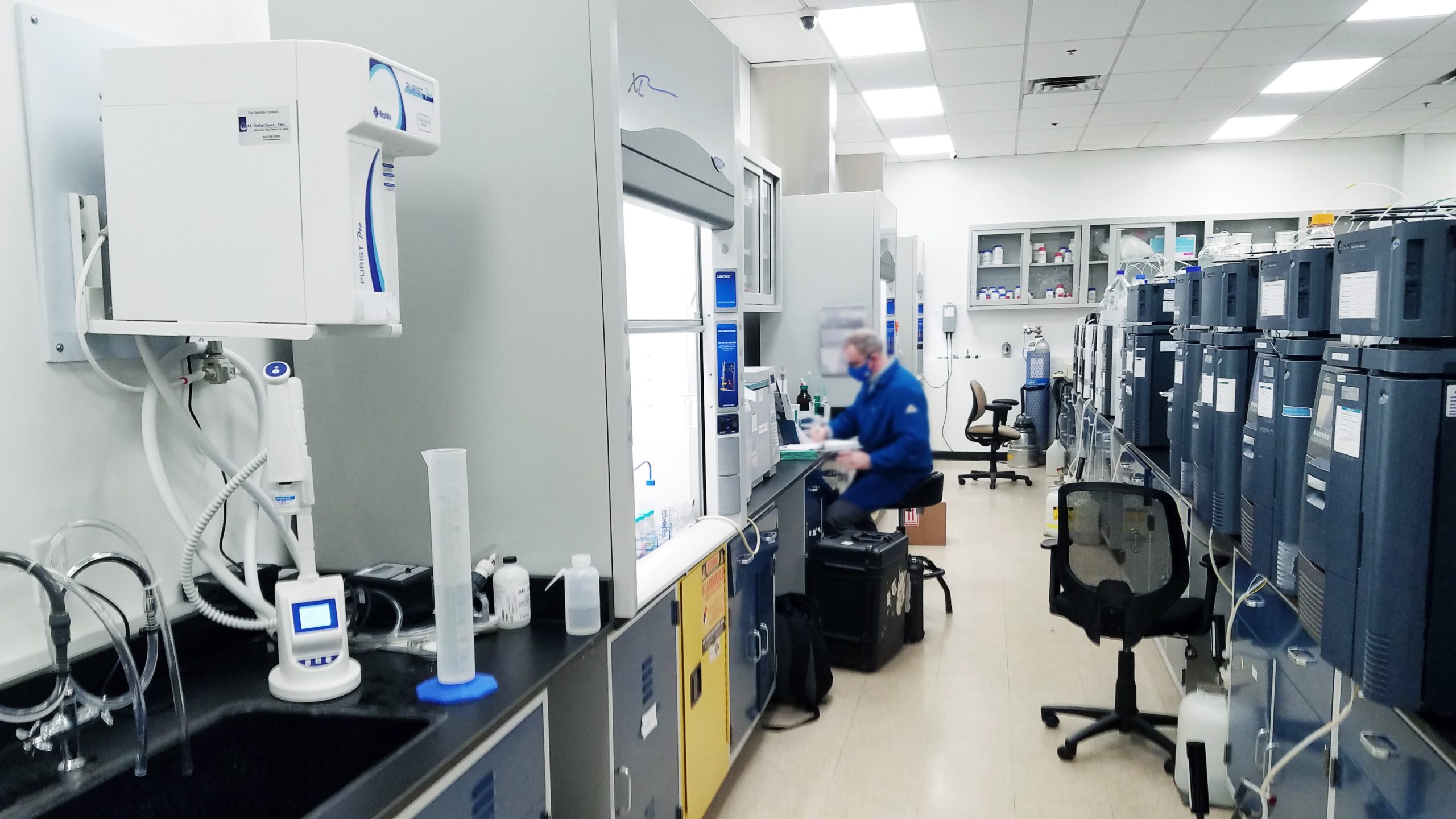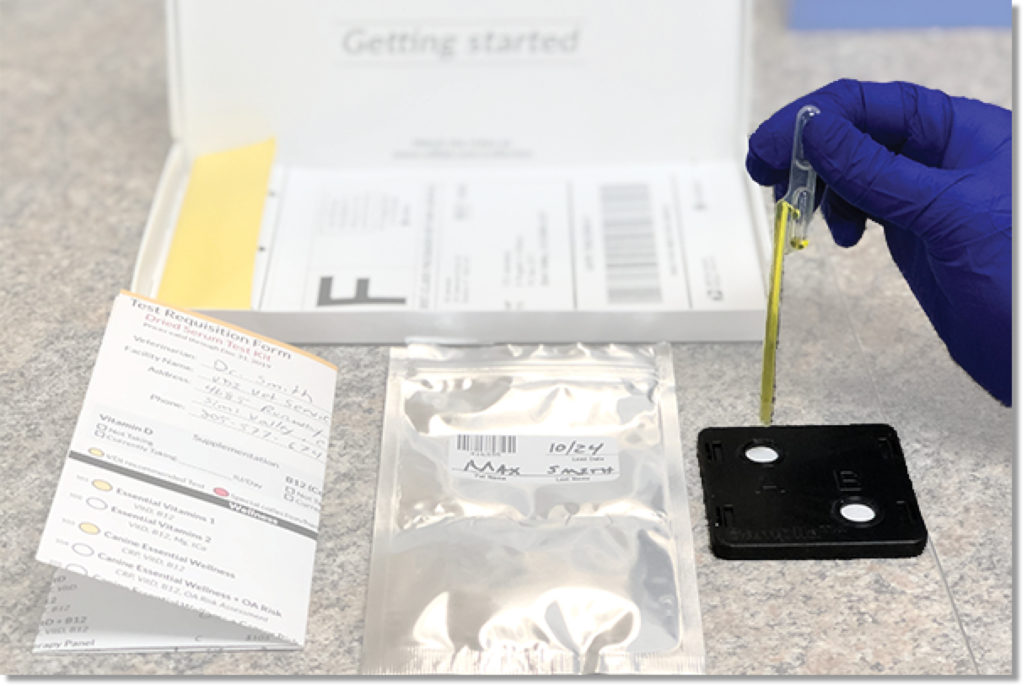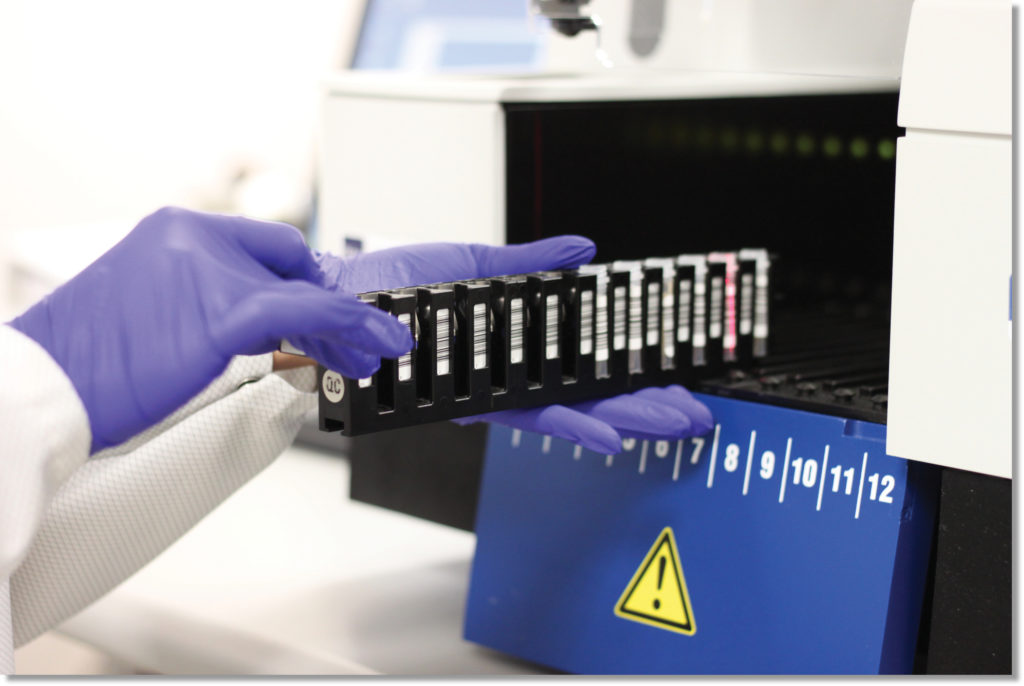
Samplla®
Dry Serum Technology
End Expensive Cold-Chain Logistics. Save packaging and shipping costs.
Save space. Save your specimen.
Samplla®

Blood is not stable
Blood, urine, and other body fluids do not provide a stable environment. It is a well-documented fact that degradation occurs the moment a sample is taken. Some testing components degrade quickly (such as hormones and enzymes) thus requiring cold or frozen transport; and if transport delays occur specimens can be rejected entirely.
With extreme weather events more common than ever, delivery delays and extreme heat is rising. Further, cold-chain logistics is getting increasingly expensive.

Samplla® Stops Time
To combat specimen degradation and the high cost of cold-chain logistics, VDI developed the Dried Specimen Transport Kit (DSTK) employing Samplla™ technology. Applying a patent-pending process the DSTK is able to achieve:
- 21-day stability at ambient temperature
- 14-hour stability at 50°C
- Analytical sensitivity down to pmol concentration
- High correlation to neat serum

Easy to Use
Specimen is applied to a custom made device using a special pipette. Specimen does not have to be applied with precision – the device auto regulates volume. Air drying is not required with on-board desiccant.
The device is inserted into a foil envelope that develops a special atmosphere stabilizing test components. Then just drop it off in the mail. Next-day delivery is optional if needed.

Quality Results
VDI Laboratory prides itself in utilizing the latest in laboratory automation. All methods are first validated on liquid serum, followed by dried technology. Dry validation follows a rigorous 9-step process that includes, extraction optimization, 21-day ambient stability, 14-hour 50°C stability, inter- and intra-assay precision, neat serum correlation, linearity, interfering substances, and reference interval calculations. If a test is offered for both dogs and cats everything is done twice using sera from those animals. In some instances when dosing calculations are recommended (such as Vitamin D and Cobalamin) relevant studies are commissioned and/or referenced.
All laboratory processes follow CLIA quality control practices with rigorous equipment maintenance, calibration and daily species-specific controls.
